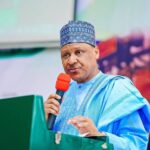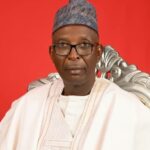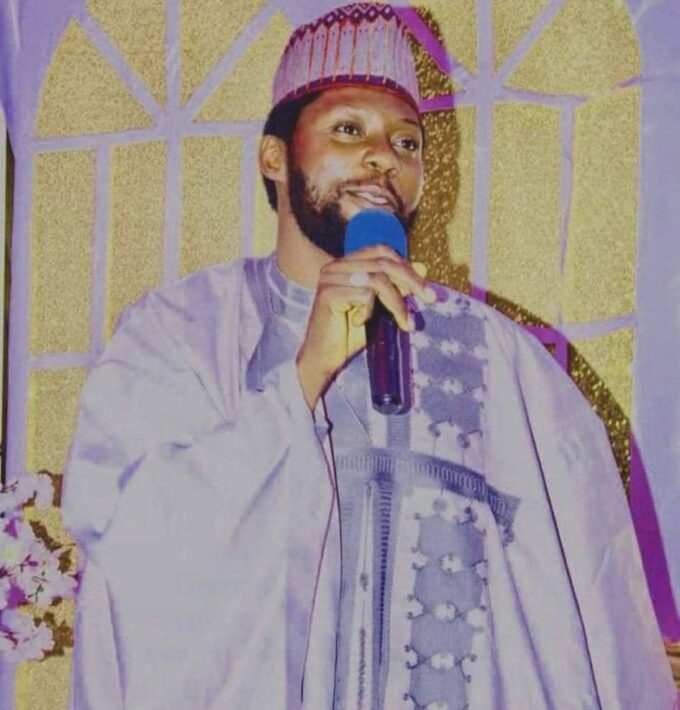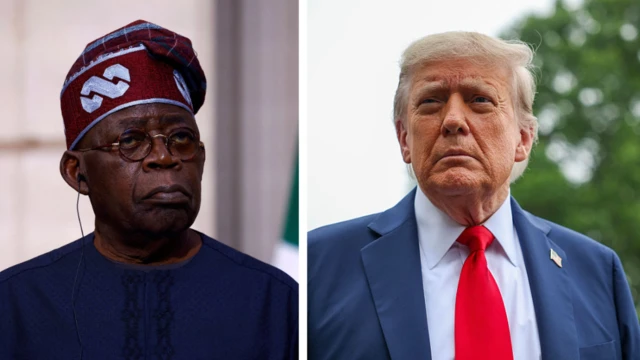This write up is a follow up to a paper written on “Brief History of the Islamic Movent: it’s goals and objectives” presented at a one day conference organized by Jaishu Shaheed Ahmad Zakzaky on the occasion of his birthday on 11th October, 2025. During the conference, different fora made presentations on various aspects of the Movement. Following discussions and comments on my paper by some respected personalities, I fee the need to expand it a little. In this paper I made an attempt to call on the people of Nigeria, especially the elites to study the objectives of the Islamic Movent under the leadership of Sheikh Ibraheem Zakzaky (H) and ponder over the message it carries. Much as I wanted to expantiate on the issues, I tried being brief for the fear that many people don’t like reading lengthy posts. My prayers are that the write up will help the intended audience to see through the lense of reason and do the needful in this short and trying time of our lives on this earth.
Nigeria, a nation rich in both human and natural endowments, continues to languish in moral decay, corruption, and misrule. The country’s immense potential has been stifled by leaders who seek wealth and power over justice and compassion. Yet, through this fog of despair, one man has persistently called for a return to righteousness, conscience, and divine order. He is none other than Sheikh Ibraheem Zakzaky (H), the leader of the Islamic Movement in Nigeria. His life and mission stand as a beacon of truth, a call to awaken the moral and spiritual consciousness of a people misled by worldly desires and secular deceit.
The Islamic Movement in Nigeria traces its roots to the late 1970s and early 1980s, a period marked by global and local spiritual awakening. The victory of the Islamic Revolution in Iran in 1979 inspired Muslim youths around the world to believe in the possibility of social transformation through faith and courage. In Nigeria, this message found a passionate advocate in Sheikh Zakzaky, then a student leader at Ahmadu Bello University, Zaria. Witnessing the collapse of moral standards, the oppression of the poor, and the alienation of Islam from public life, Sheikh Zakzaky had already began the call for a return to the totality of Islam, not as a mere religion of rituals, but as a comprehensive system governing every aspect of human existence. His message resonated deeply with students, intellectuals, and the masses, who had grown disillusioned with the failures of secular governance. By the early 1980s, this moral and intellectual awakening had crystallized into a vibrant socio-religious movement — the Islamic Movement in Nigeria. Rooted in Tawhid (the Oneness of Allah) and struggle against oppression, the Movement sought to build a just society anchored on divine guidance, where equity replaces exploitation and the wealth of the nation serves the welfare of all.
From its inception, the Movement has been a call to reawaken conscience and restore divine order. It stands upon six enduring pillars: spiritual and moral reformation, knowledge and enlightenment, unity of the Ummah, justice and resistance to oppression, service to humanity, and the establishment of a just order. Through community programs, educational projects, health services, and social mobilization, the Movement has shown Islam’s potential as a force for human dignity and progress. Sheikh Zakzaky’s teachings emphasize that true reform begins not with the seizure of power, but with the purification of the heart and the transformation of character.
The path of truth, however, is never smooth. From its earliest days, the Islamic Movement faced state hostility and violent repression. Its commitment to justice and independence of thought threatened the entrenched powers that profit from corruption and division. Throughout the 1980s and 1990s, followers of the Movement suffered arrests, harassment, and massacres, yet their faith remained unshaken. The darkest (or indeed the brightest) chapter came in December 2015, when government forces unleashed unprecedented brutality upon peaceful members of the Movement in Zaria. Thousands were killed, Sheikh Zakzaky and his wife were imprisoned, and their followers were persecuted across the nation. The Zaria Massacre stands as one of the most painful symbols of Nigeria’s injustice which was an assault not merely on a community, but on conscience itself. Yet, even in the face of this cruelty, Sheikh Zakzaky’s message of patience and perseverance did not waver. His steadfastness transformed oppression into moral victory, proving that truth cannot be extinguished by bullets.
The resilience of the Movement, despite relentless persecution and media blackouts, is a testimony to divine guidance and disciplined leadership. Every drop of martyr’s blood has nourished the tree of faith, making the Movement stronger and more determined. The Jaishu Shaheed Ahmad Zakzaky Conference, named after the army of martyrs, stands as a reminder that, sacrifice for truth is the highest form of life, the Qur’an declares: “Do not say of those slain in the way of Allah that they are dead; nay, they are alive, but you perceive not.” (Qur’an 2:154).
Perhaps one of the most profound aspects of Sheikh Zakzaky’s mission is its universal message. Despite being rooted in Islam, the Movement’s call for justice, compassion, and human dignity transcends religious boundaries. Many Christians and non-Muslims have come to admire Sheikh Zakzaky’s courage, honesty, and devotion to the cause of the oppressed. His teachings and humanitarian projects have demonstrated that Islam, at its core, is a religion of mercy and justice for all humanity. This growing understanding between Muslims and Christians, inspired by the Movement’s conduct, is a beacon of hope in a nation too often divided by politics, religion, and ethnicity. It reflects the Sheikh’s conviction that Nigeria’s renewal will come not from division, but from cooperation under the banner of Islam manifested through truth and justice.
In light of this history, the call now extends especially to Nigeria’s educated elites: the professors, professionals, and intellectuals who possess knowledge yet remain passive in the face of moral collapse. Silence in the face of injustice is betrayal. Education must not serve personal advancement alone; it must serve the collective upliftment of society. The nation’s conscience must be awakened, and its intellectuals must stand as voices of truth rather than beneficiaries of corruption. Sheikh Zakzaky’s vision challenges this elite class to rise above comfort and fear, to lend their intellects, influence, and voices to the noble mission of Islamic revival which will lead to Allah’s pleasure and national renewal. For Nigeria to heal, its most enlightened citizens must become the architects of moral change.
The message of Sheikh Ibraheem Zakzaky remains a living call which is recognize the Sovereignty of Allah, to restore justice, equity, and divine order to our society. It envisions a Nigeria where governance is rooted under Allah’s supremacy and in morality, where religion is practiced freely, and where the wealth of the nation is used to uplift the lives of its citizens rather than enrich a corrupt few. It is a vision that demands courage, sacrifice, and faith. Let every Nigerian of conscience, Muslim and Christian, rich and poor, educated and unlettered collectively heed this call. Let us unite under the banner of truth and compassion to rebuild our nation on the foundations of justice and divine guidance.
The history of the Islamic Movement is not merely a record of struggle; it is a mirror reflecting what Nigeria could become; a nation reborn through faith, knowledge, and resistance to oppression. History will not forget those who stood for truth when silence was easier. Let us be counted among them, as builders of a just, God-fearing Nigeria that future generations will call blessed.














Leave a comment